Petition calls time on dog ban on ferries
Brisbane residents are pushing for changes in regulations to allow dogs on ferries, arguing two in every five households own a dog. SEE HOW YOU CAN JOIN THE PETITION
Local
Don't miss out on the headlines from Local. Followed categories will be added to My News.
Annie Boxall’s fur-baby Banjo Paddington has a bone to pick with Brisbane city - he wants to travel on its ferries.
Unlike many world cities including Sydney, New York, London and Paris, Brisbane continues to prohibit dogs from travelling on public transport, unless they are assistance dogs, but Banjo and his family are hoping to change that.
Ms Boxall has set up a Brisbane City Council e-petition to bring the city in line with its southern counterpart and international destinations.
“I really do believe it is time for change,” Ms Boxall said.
“Our dog travels everywhere with us including interstate on flights and on public transport in Sydney without issue. In Brisbane, it feels like a dark cloud hangs over the joy of dog ownership imposed by outdated views, rules and attitudes.”
“We recently moved back to Brisbane from Sydney where most local parks in the inner-city are either off-leash all the time or have designated dog off-leash times.”
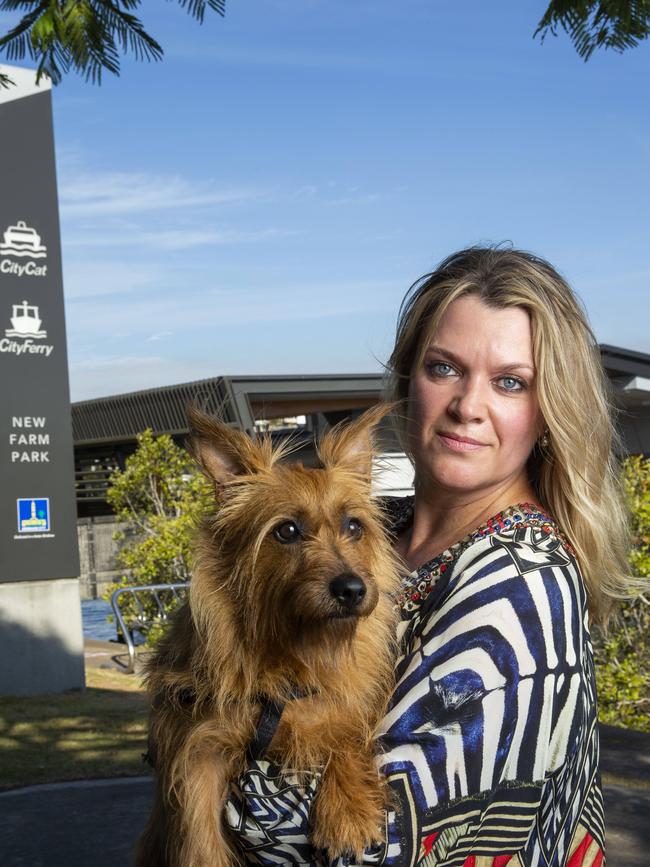
People choose quality time with fur-babies over holidays without them
Australian travel industry urged to keep up
Ms Boxall, who grew up in Brisbane, said the contrast between their life in Sydney with Banjo and now back in Brisbane “could not be greater”.
“In Sydney, Banjo can travel on most transport either on a leash or in a soft carry-on pet crate with ease,” Ms Boxall said.
“As a result, we would spend all our leisure time and money doing things with our dog around different villages and experiencing new walking adventures - great exercise and no car on the road.”
“By comparison, we do less of everything including spending our money out and about as life with a dog here sadly feels more suffocating than inspiring.”
“Brisbane is considered to be a world class city on many levels and it is in area such as the arts and many aspects of general liveability but continues to have an archaic view of dogs out and about within the community.”
SUBSCRIBE TO CITY NORTH NEWS AND THE COURIER-MAIL AND GET A FITBIT
Ms Boxall said dog friendly cities she had visited like Paris, Cannes, New York, Denver, Aspen and Beaver Creek all allowed dogs to ride public transport including buses, small shuttle buses at ski areas, ferries and boats and throughout air terminals.

“It was wonderful to see what a calming and happy impact dogs (and some cats) had on the tensions of the travelling public especially during peak commuter periods,” Ms Boxall said.
“People smile and request pats and discussion opened between people who may never have otherwise connected.”
“Internal areas such as the airports even had “Pet Relief Rooms” while waiting for flights.”
“I’m not suggesting we go straight for this level, but one step into modern thinking toward pets and opening up our communities for dog owner would be great. The fight for better conditions for pets on flights is another battle for another day…especially in light of recent deaths of dogs in transit.”
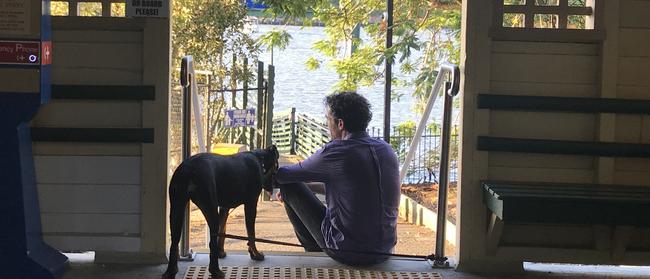
Across the river in Bulimba, Paul Liddy and his dog Ziggy are equally keen to see a major shake up of public transport rules for pets.
Mr Liddy said dogs were an “integral part of a lot of people’s lifestyles”.
“A higher proportion of Australians live in households with a dog and/or cat than with a child,” Mr Liddy said.
“Dogs remain the most popular type of pet with almost two in five households (3.6 million) owning a dog and the percentages are increasing.”
“Non-dog owners might find it difficult to understand how important they are to us. I certainly didn’t before I had my first dog but they don’t call them fur babies for nothing.”
“They become a part of your family, and as with the other family members you want them to have a happy, enriched life.
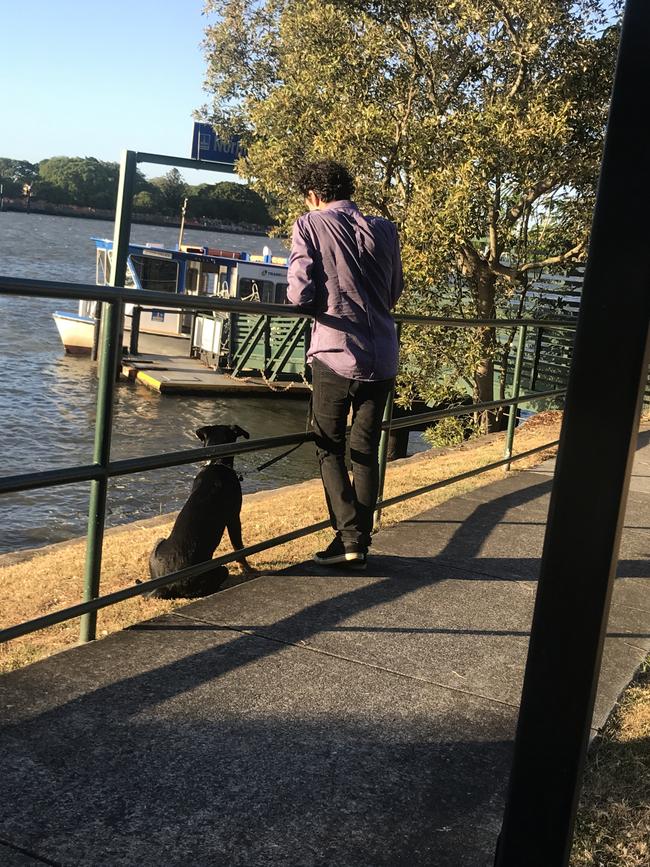
Mr Liddy said the benefits of travelling around the city with pets was two fold - more contented dogs and owners and less cars on the road.
He said just across the river from Bulimba was a world-class facility in New Farm park as well as well as walking paths, and a “multitude of attractions for dogs to sniff around and explore on leash”.
“Beyond that, there are numerous other places/markets/riversides we would visit as well as the likes of Southbank, Kangaroo Point under the bridge,” he said.
“Unfortunately if I want to take Ziggy to those, or any other interesting adventure around our river city, I need to add to my carbon footprint, create traffic congestion and park in already overcrowded street parking by owning and using a car. BCC have made it clear, that these are all issues that they are aiming to eliminate, not create.”
He said there would be a range of elements to consider before allowing pets onto ferries including “not everyone likes dogs, some people are frightened of them, some people have allergies, dogs can be dangerous (that’s mostly about the owner, not the dog) and pets can make a mess sometimes.”
But like Ms Boxall, Mr Liddy proposed a solution - a “dog owners gocard” that registered the dog as approved for the ferries could solve the problem.
“An owner could have to get approval from a vet/RSPCA or other agency to prove it was not dangerous or destruction and “if necessary, pay a higher fee for the privilege,” Mr Liddy said.
He also said dog owners could be limited to using citycats and restricted to the rear of the vessel outside, would provide a safe, allergen free zone for non-dog people in the cabin or front of the vessel.
“Furthermore , if a pet did make a mess it is in an area that is designed to be hosed out/cleaned easily without any residue,” he said.
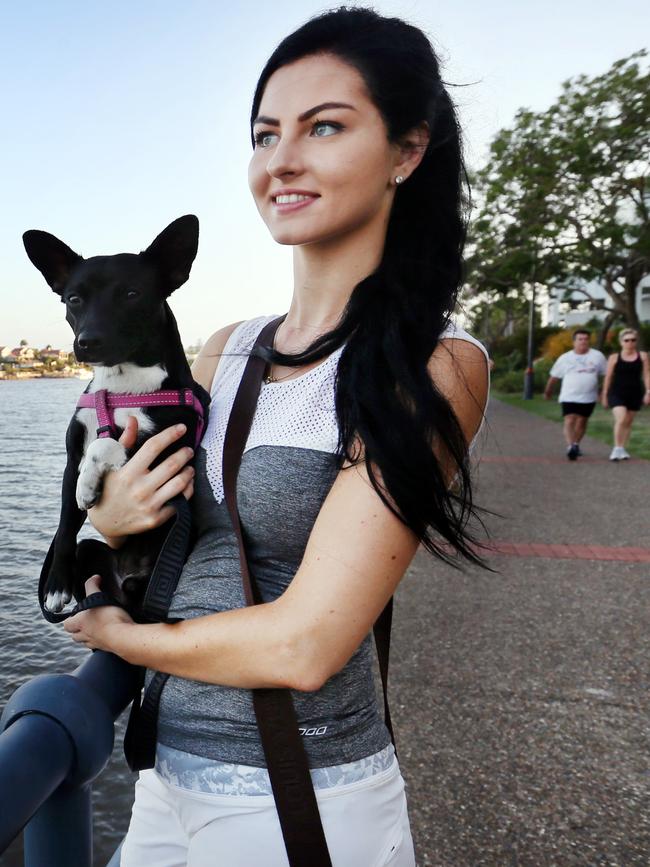
“Let’s enhance (at least 60% of) our populations lifestyle, Encouraging greater use of the city’s recreational facilities , create a healthier city, reduce cars and traffic inner-city and Bringing our river to life by allowing pets on Brisbane’s ferry services.”
Mr Liddy and Ms Boxall are not the first to push for change.
Owners across the city have been calling on government to bring Brisbane into line with the rest of the world for years.
In December 2017, the News asked TransLink about animals on ferries.
A spokesman said “Animals and pets are not allowed on public transport services in accordance with the Transport Operations (Passenger Transport) Regulation 2005 for the safety and comfort of all customers”.
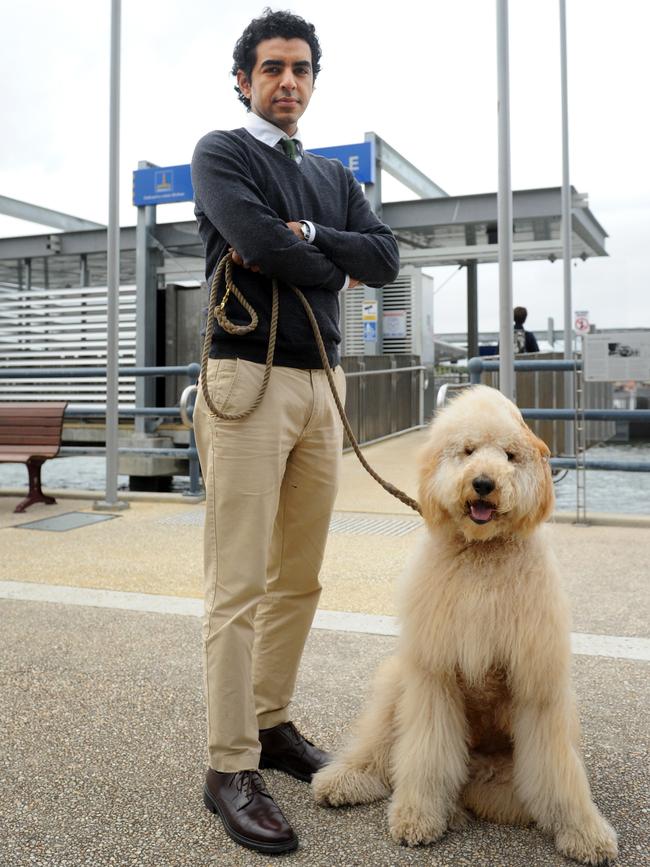
“The only animals permitted to travel on all TransLink services are certified guide, hearing and assistance dogs, in accordance with the Guide, Hearing and Assistance Dogs Act 2009,” the spokesman said.
“Guide, hearing and assistance animals are specifically trained to behave appropriately in public and are registered with the Queensland government prior to being able to travel on public transport services.”
The spokesman said pets could pose a danger to passengers and “may not be as well trained as assistance animals”
He said there was no plan to change the policy.
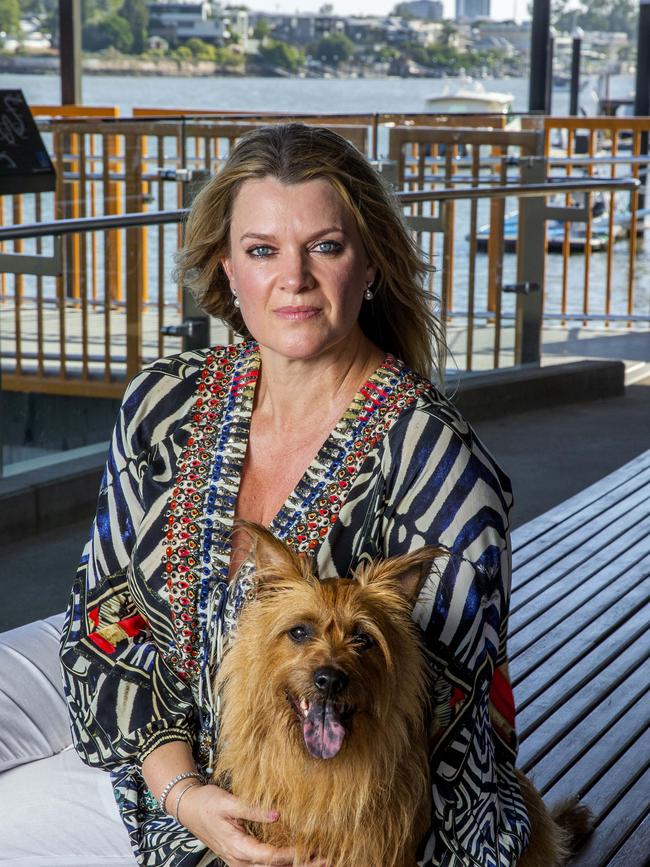
Ms Boxall said an example/outline of how such a program could work…
•Dogs can be cleared by a BCC approved dog trainer that they are well socialised, happy to interact with strangers and other dogs, good with children approaching, respond to essential commands and are under control.
•This could take place with a monthly group session in a park where the approved trainer and dog transport applicants/dogs meet and step through the critical criteria for clearance. Or, between these sessions, the dog owner could fund assessment privately.
•If the dog gets the tick of approval then the owner has a digital or paper certificate that the dog may travel on transport which can be shown to the driver/ferry operator.
•As part of the program, the owner must acknowledge and sign an agreement that outlines their responsibilities while using public transport. Content may include, a secure leash or harness, seating in a particular area etc.


